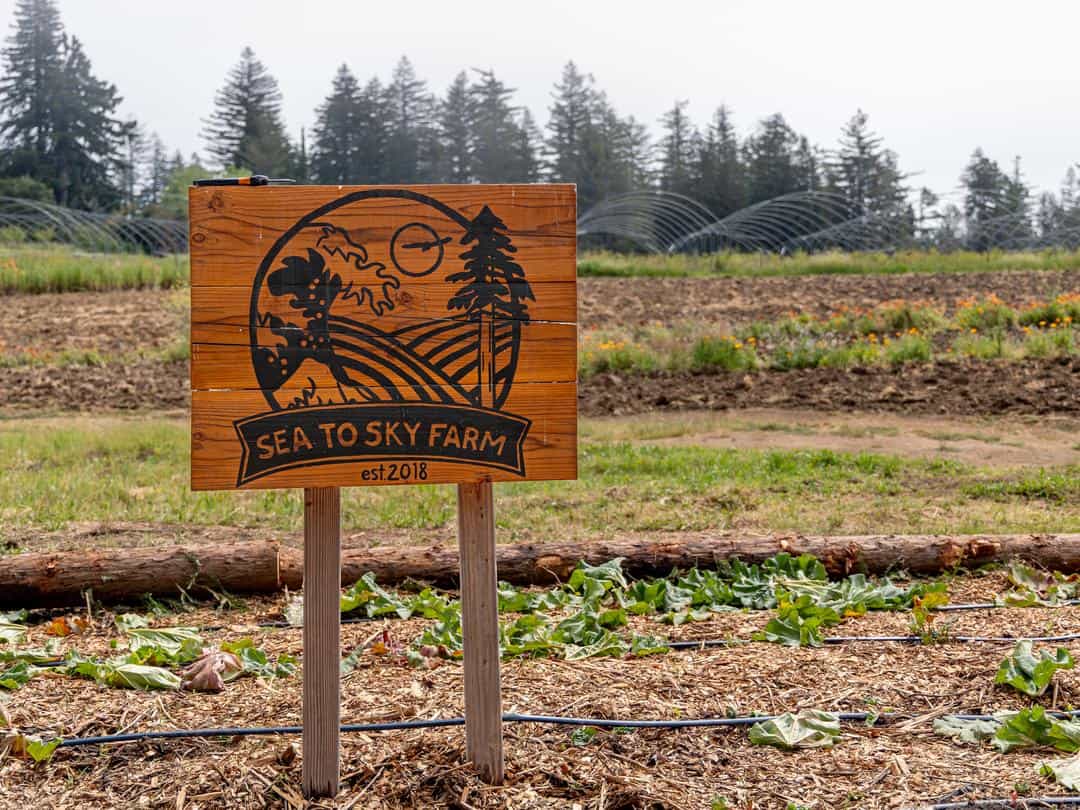Sea to Sky Farm: Organic Farming and Fairytale Feels
Tucked away in the Santa Cruz Mountains is Sea to Sky Farm, an idyllic, organic farm that grows fruits, vegetables and flowers.
To say that Sea to Sky Farm has a fairytale feel is an understatement. With its romanticized name, visitors probably expect something magical. They won’t be disappointed.
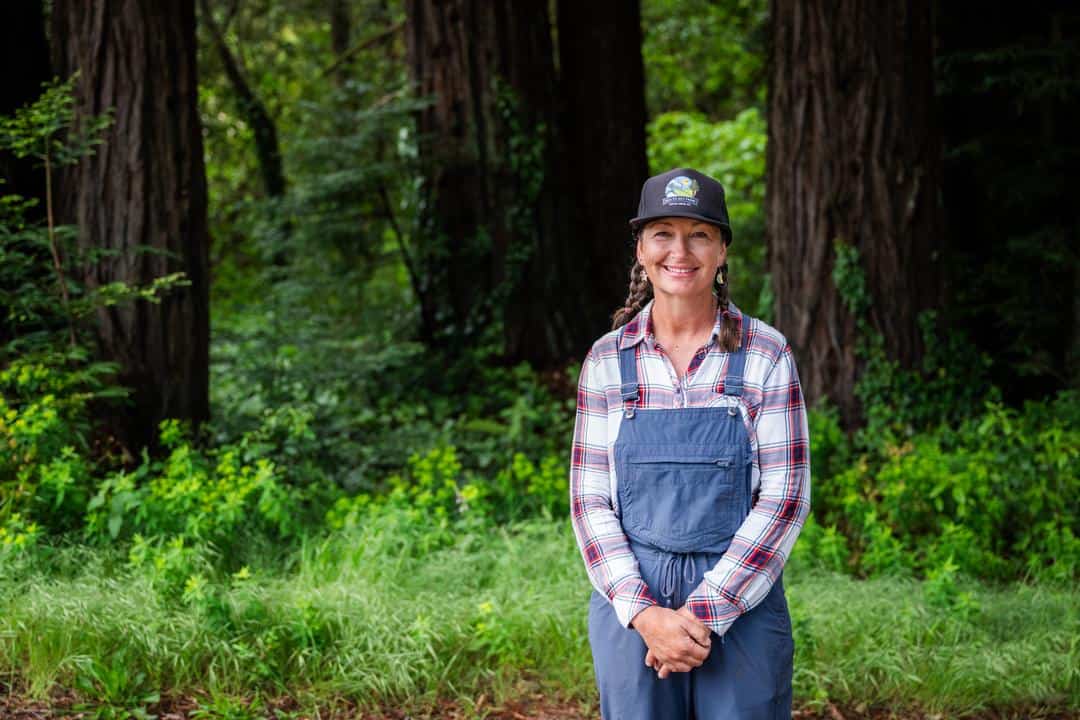
There is only one way to the farm – a windy mountain road, lined by tall sky high redwoods. A layer of coastal fog sometimes blankets the farm, which only enhances the ethereal aura of this place. It’s easy to see why farmer Chris Laughlin loves her acreage in the Santa Cruz mountains.
Sea to Sky Farm is actually two separate farms. We visited the Sky Farm, 24 elegant acres in Bonny Doon, the northernmost part of Santa Cruz County. Chris farms an additional 20 acres at the Sea Farm, a lower elevation site near the coast in Davenport.
Chris is a fourth-generation farmer but the first female farmer in her family. “The calling just grew louder and louder as the years went by,” she laughs. “It’s in my blood, really. It’s a love and a passion I’ve had since a very young age.”
What grows at Sea to Sky Farm?
Sea to Sky’s primary crop is sweetpotatoes, the same crop that most of her family grows in California’s Central Valley. Admittedly, sweetpotatoes are a rather unusual crop for Santa Cruz County. Chris explains, “This place, in particular, is very special in that it’s a unique microclimate. We’re at about 1,500 feet in elevation. We’re also, as the crow flies, very, very close to the ocean. So, we have quite a strong coastal influence, but we’re also high enough in elevation that we can get extremely hot temperatures, which is why we’re also able to grow sweetpotatoes. It’s also the soil that we have to work with. It drains really well. It’s a beautiful soil for all sorts of vegetables and really unique.”
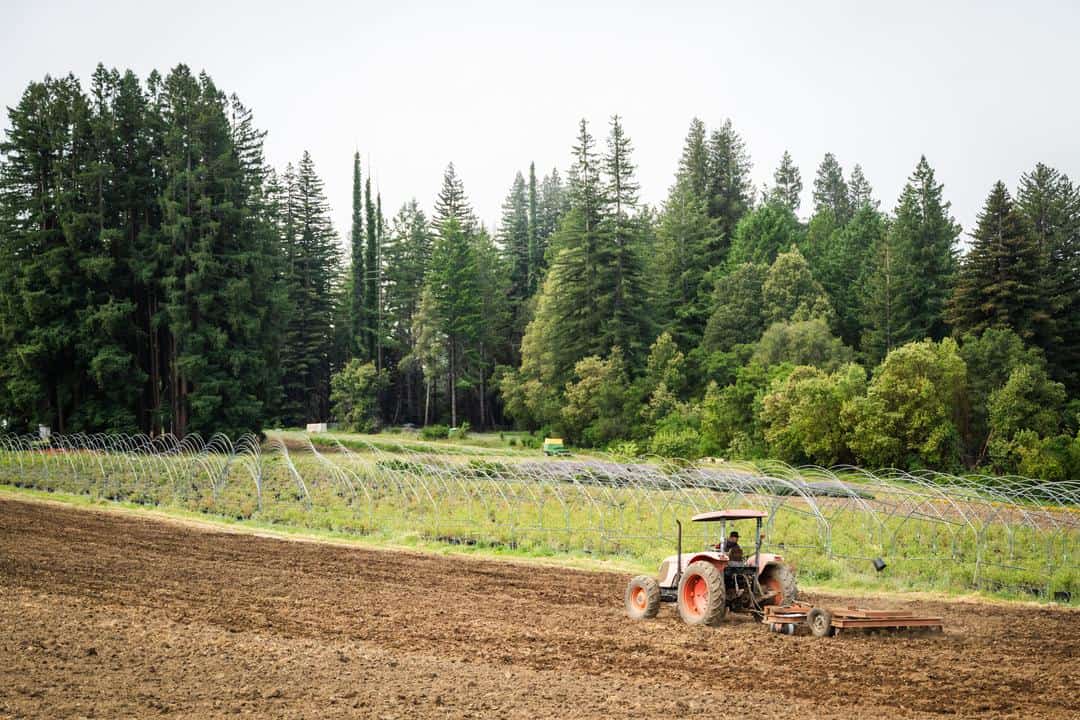
While sweetpotatoes are the primary crop at Sea to Sky Farm, they are certainly not the only crop. Chris grows over 100 different commodities including blueberries, guavas, raspberries, apricots, plums, peaches, pineapple, strawberry, lemon guava, apples, rhubarb, leafy greens, brassicas, broccoli, cauliflower, kale, spinach, onions, potatoes, culinary herbs, flowers and more.
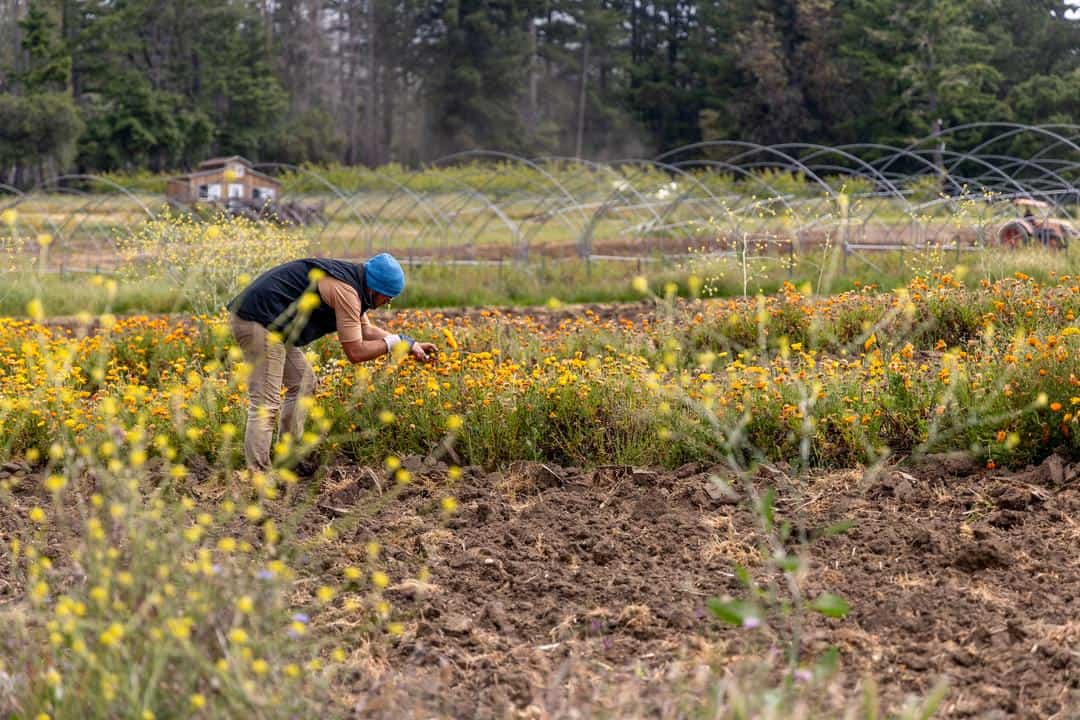
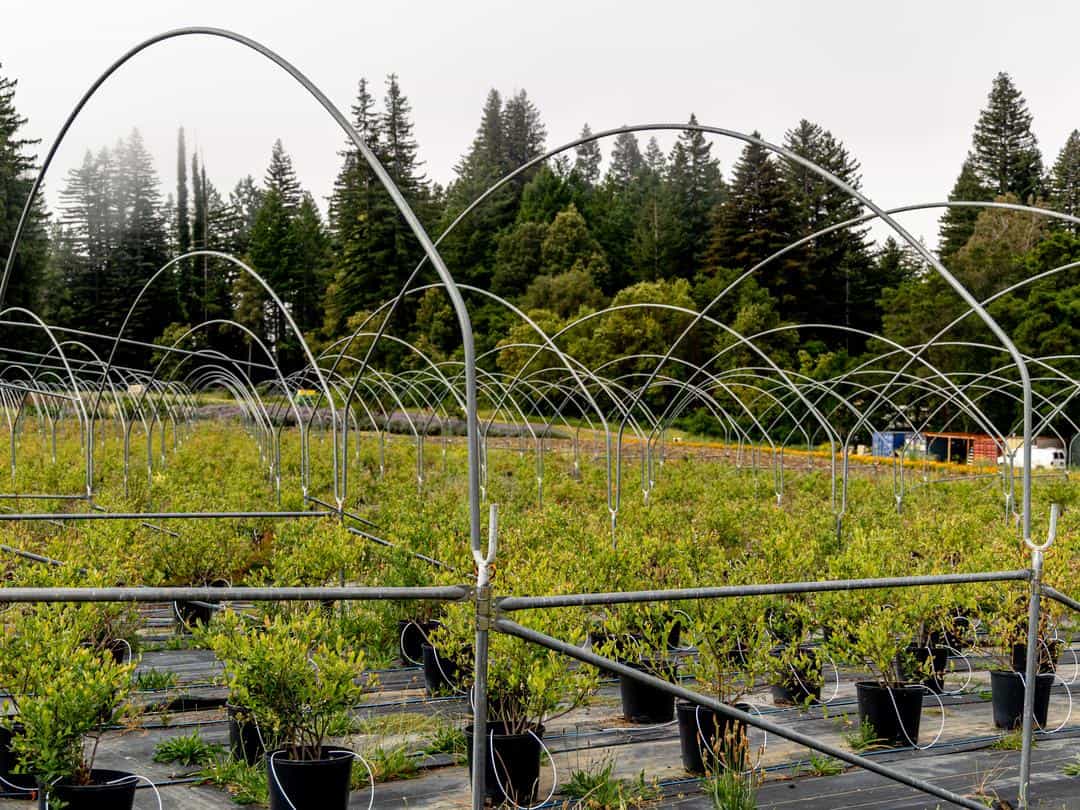
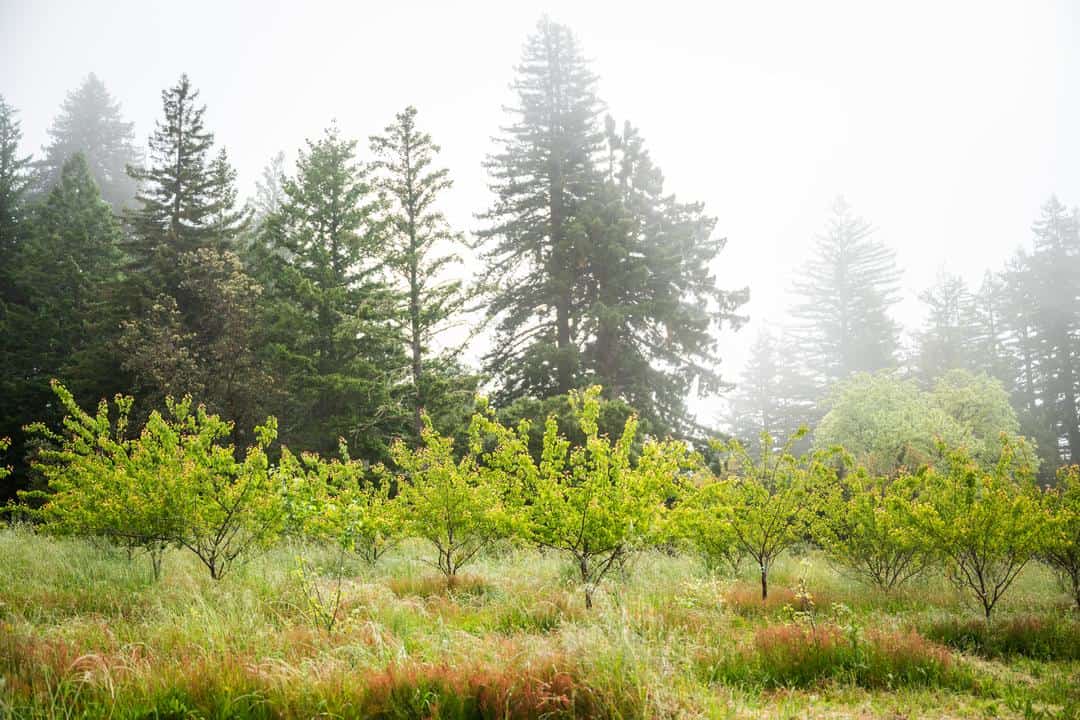
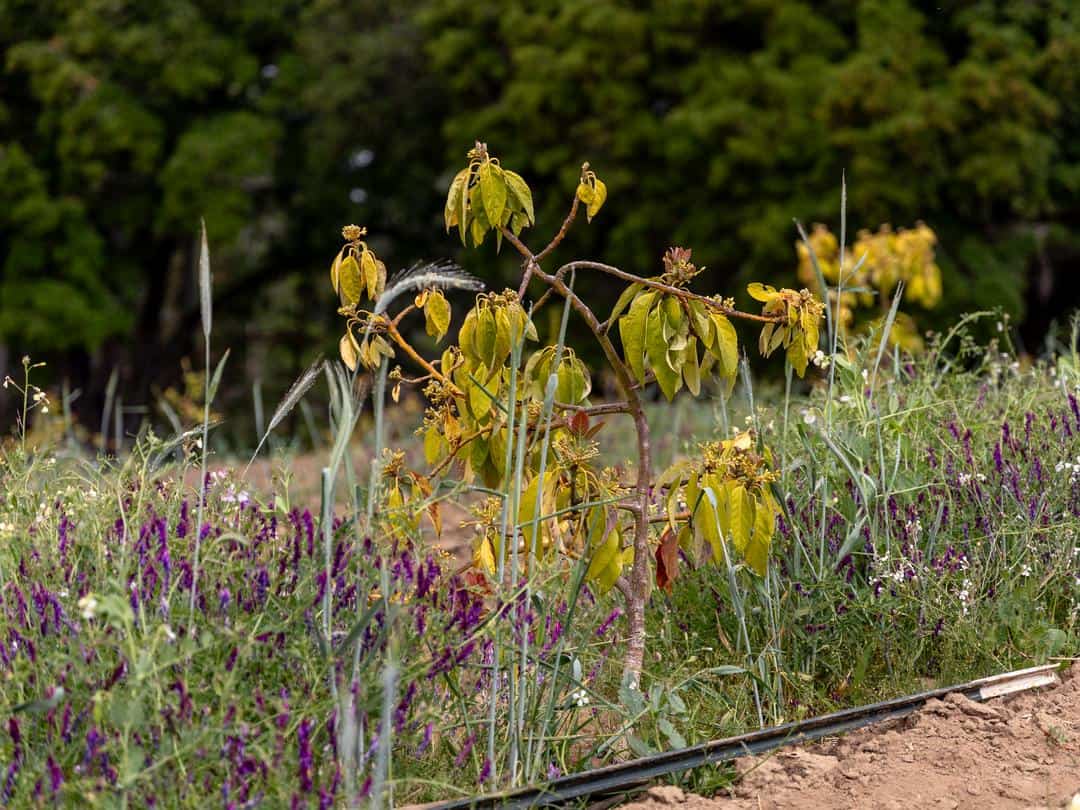
When we visited Sea to Sky Farm, Farmer Chris explained how rhubarb is grown and even let some of our creators have a go at harvesting the stalks!
Want to learn more about rhubarb? Here’s the scoop on whether rhubarb is poisonous – and everything else you need to know.
Curious about what our friend Irvin made with those stunning stalks? Get his recipe for Cherry Rhubarb Crisp (you can thank us later).
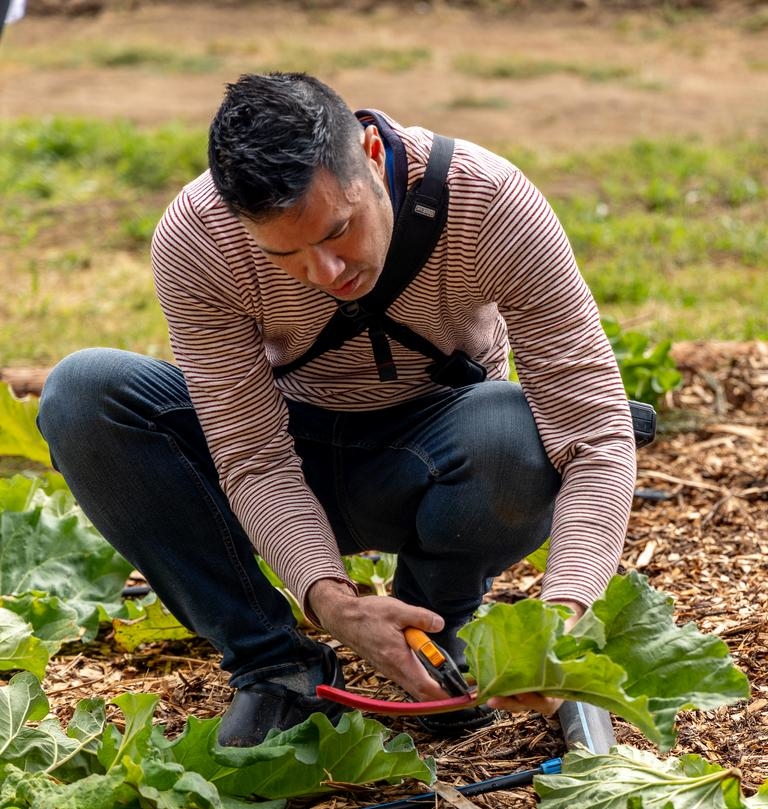
Is Sea to Sky Farm a certified organic farm?
Everything grown at Sea to Sky Farm is certified organic. “Farming organically is the right thing to do,” Chris explains, “not just for the longevity and health of the soil and the land, but for everyone involved – from the farmer, to farm helpers, to consumers. Working with and eating food that has not been treated with sprays or chemicals promotes healthy minds and bodies, and maintains a more balanced ecosystem of the land, watersheds, and wildlife.”
Fun Fact: Did you know that 30% of all Santa Cruz farms are certified organic? Learn more about what grows in Santa Cruz County!
Is Sea to Sky Farm Sustainable?
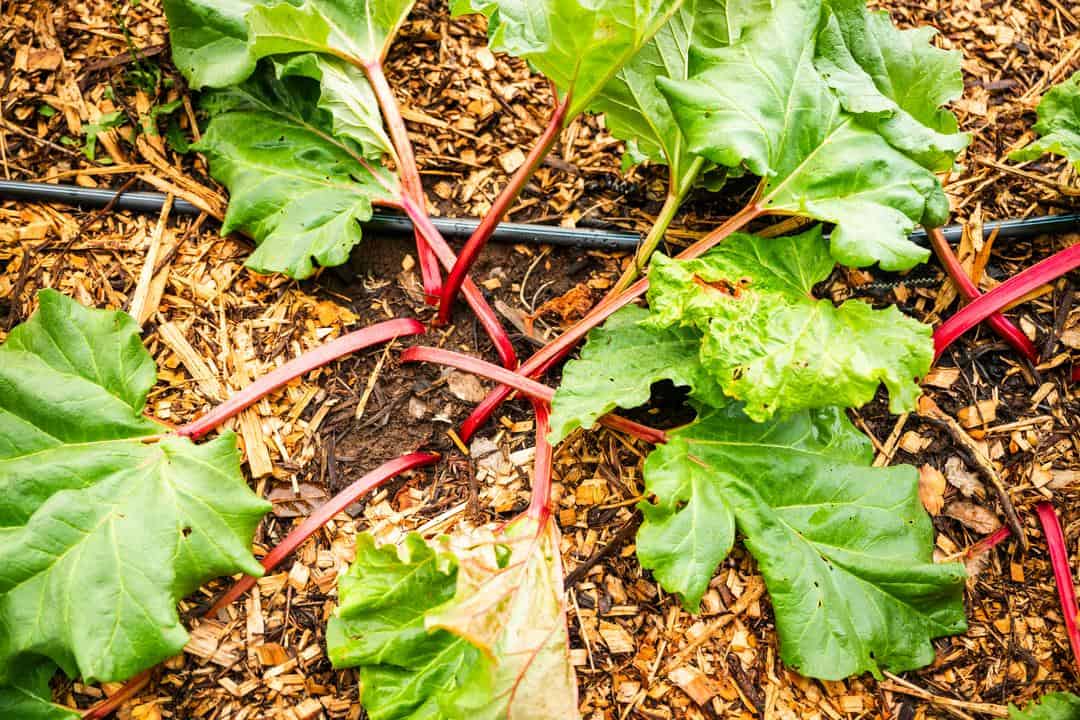
Sea to Sky Farm is dedicated to sustainable farming. “It makes a difference, not just in the quality and taste of the produce, it also helps to maintain balance on the farm,” Chris states. She aims to farm in the most sustainable, regenerative way possible. Bonny Doon receives more rain than most of the state, but water conservation is still a concern. Chris uses drip lines throughout the farm to conserve water and ensure that each plant gets the ideal amount of water.
Some of her crops, like tomatoes, squash and potatoes, are dry farmed (which means these crops are “watered” entirely by Mother Nature). Crop rotation, crop diversity, cover crops, organic compost and minimal tilling promote healthy soils, while beneficial plantings, hedgerows and untouched acreage help maintain the farm’s ecological balance.
Using flowers to fight insects
In keeping with the aforementioned fairytale vibes, Chris uses flowers in lieu of pesticides to control pests on the farm. “I plant a large amount of beneficial plantings and flowers to help bring in a good population of beneficial insects. They will predate upon the harmful insects to all of the vegetable crops,” she explains. Flowers fighting off insects might sound like some kind of magic, but it works – and speckles the farms with splashes of brilliant color.
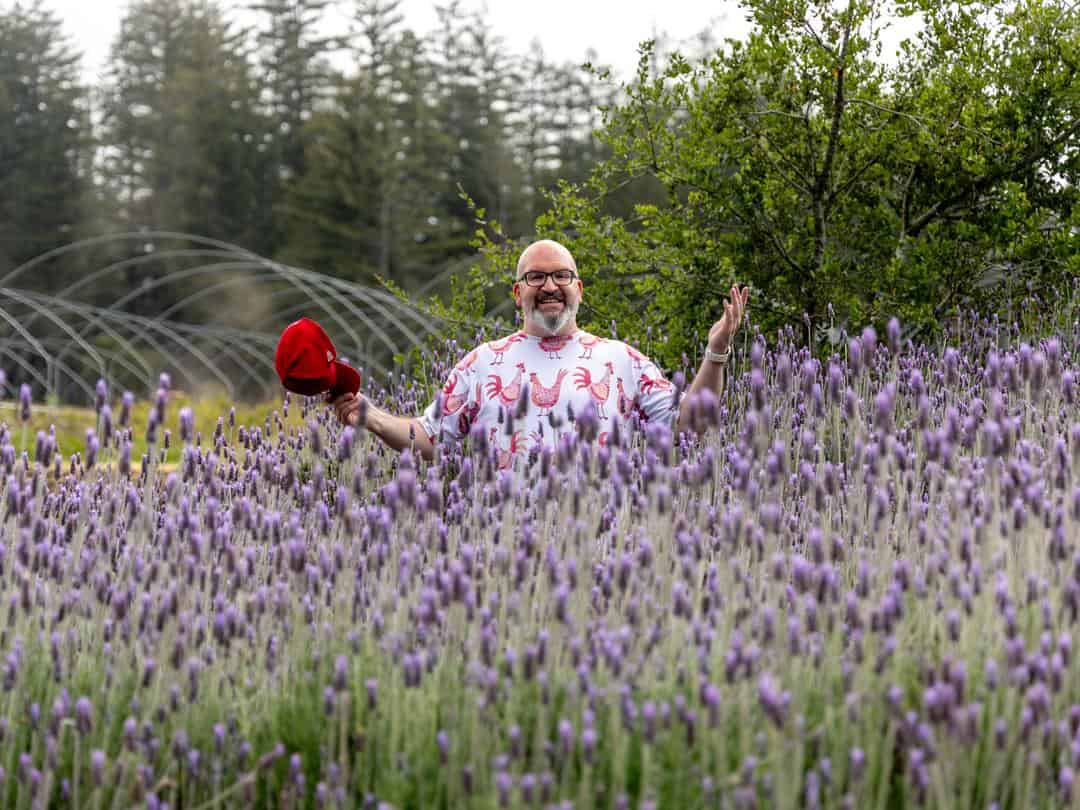
What are the challenges of farming in the Santa Cruz hills?
Every good fairytale includes a chapter about overcoming adversity, and Sea to Sky Farm is no exception. In 2020, a devastating fire tore through the Santa Cruz Mountains. Both Chris and her parents’ homes were spared, thanks to the valiant efforts of two resourceful neighbors who rented a water truck and staved off the flames. Her farm, however, was not left unscathed. Her storage shed, filled to the brim with freshly harvested fruits and vegetables, was destroyed, along with much of the farm’s infrastructure. Chris was determined to build back bigger and better. Today, the only reminders of the fire are a few tell-tale charred tree trunks and a farm truck with third-degree burns.
Outside of natural disasters, the farm’s biggest threats are unpredictable weather and extreme temperatures. In 2023, torrential rains wiped out Chris’ blueberry and peach crops. Temperatures regularly reach 100 degrees Fahrenheit during the summer months, so Chris needs to be vigilant about making sure every plant has enough water to thrive.
Learn more about what grows in Santa Cruz County!
Natural springs, fairy circles and ceremonial sites
Speaking of fairy tale feels, the farm’s natural springs, fairy circles and Indigenous Peoples’ ceremonial sites only add to the magical vibe. On one edge of the property, a natural spring bubbles into a pool. Nearby, a group of old-growth redwoods forms a fairy ring. The shaded grove is the perfect place to cool off, enjoy a quick snack, or snap a few selfies.
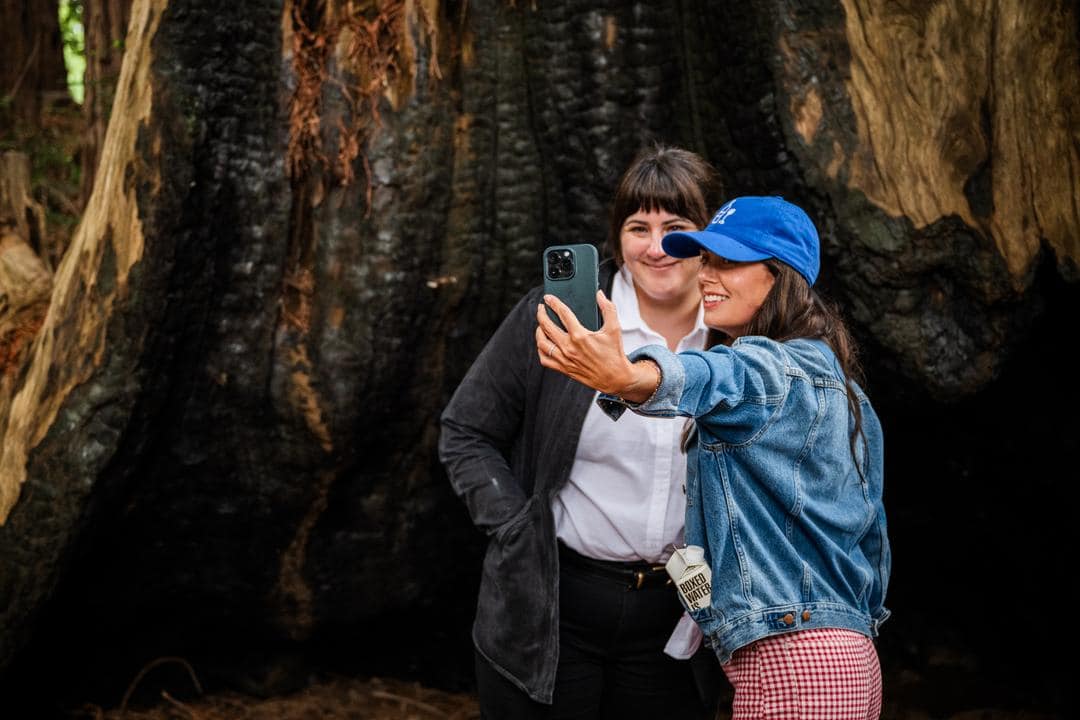
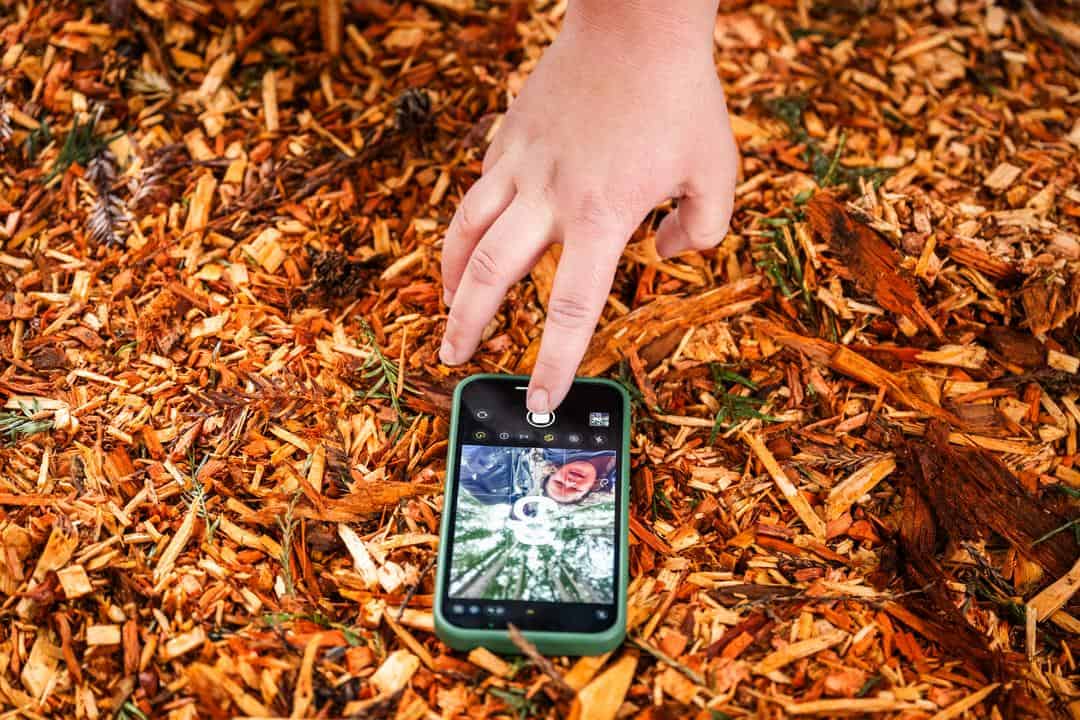
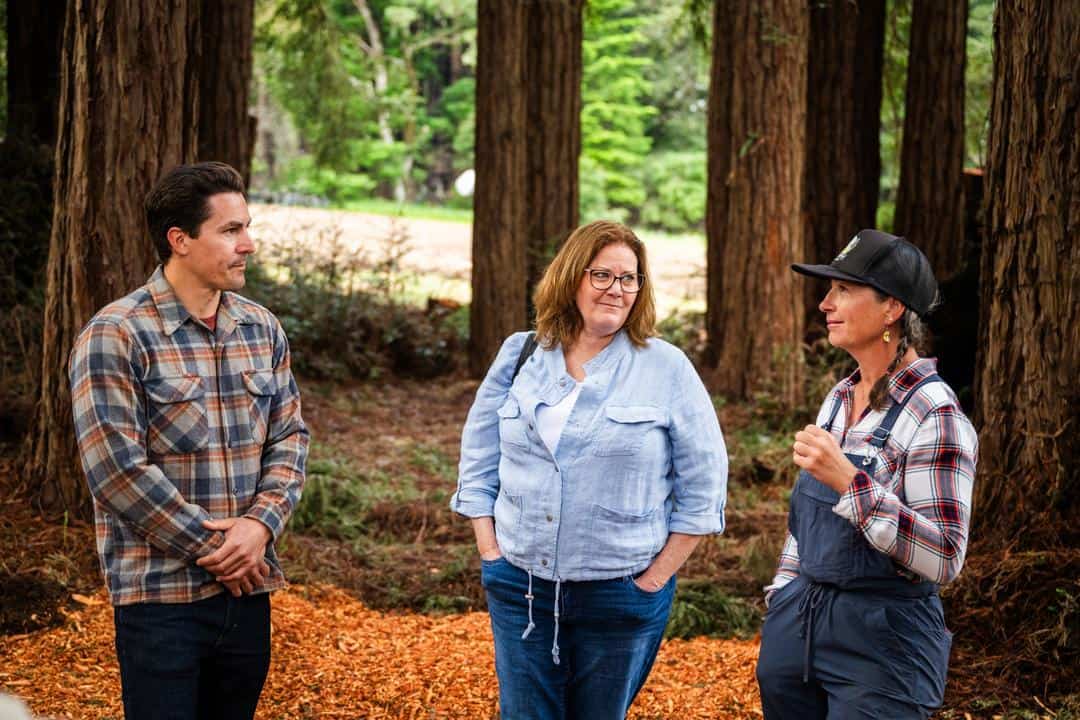
When Chris purchased the property, the previous owner informed her that certain areas had been identified as Indigenous Peoples’ ceremonial and gathering sites. Chris has worked alongside the Ohlone leaders to learn the best ways to honor the history of those sites while sharing them with visitors to the farm.
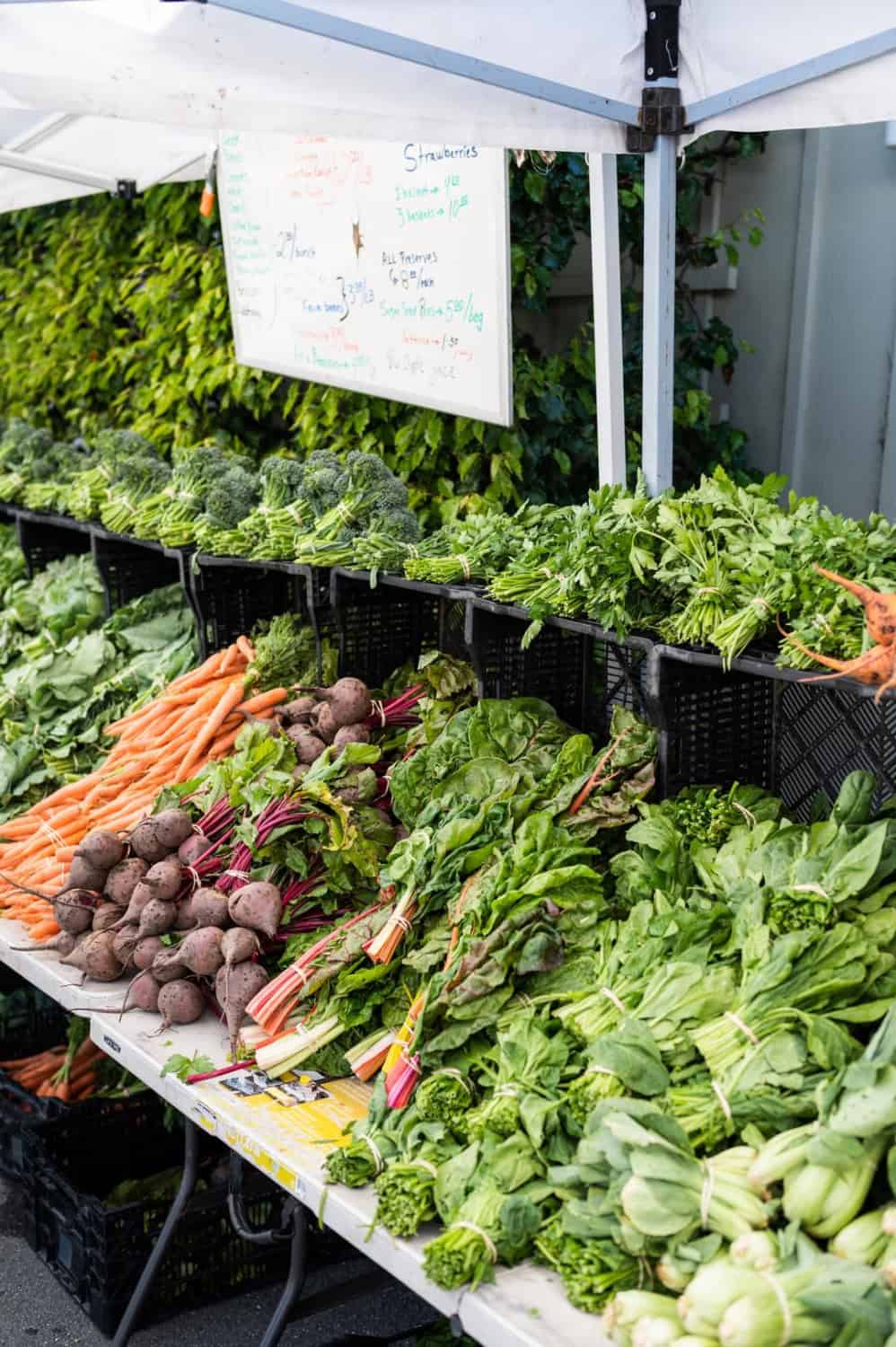
Where can you find Sea to Sky Farm’s produce?
You can find Sea to Sky Farm’s organic produce at select farmers markets in Northern California and along the Central Coast. Click here for the most up-to-date information!
If you’re in the Santa Cruz area, don’t miss the Santa Cruz Farmers Markets!
Want to learn more about Santa Cruz County farms? Here are a few of our favorites
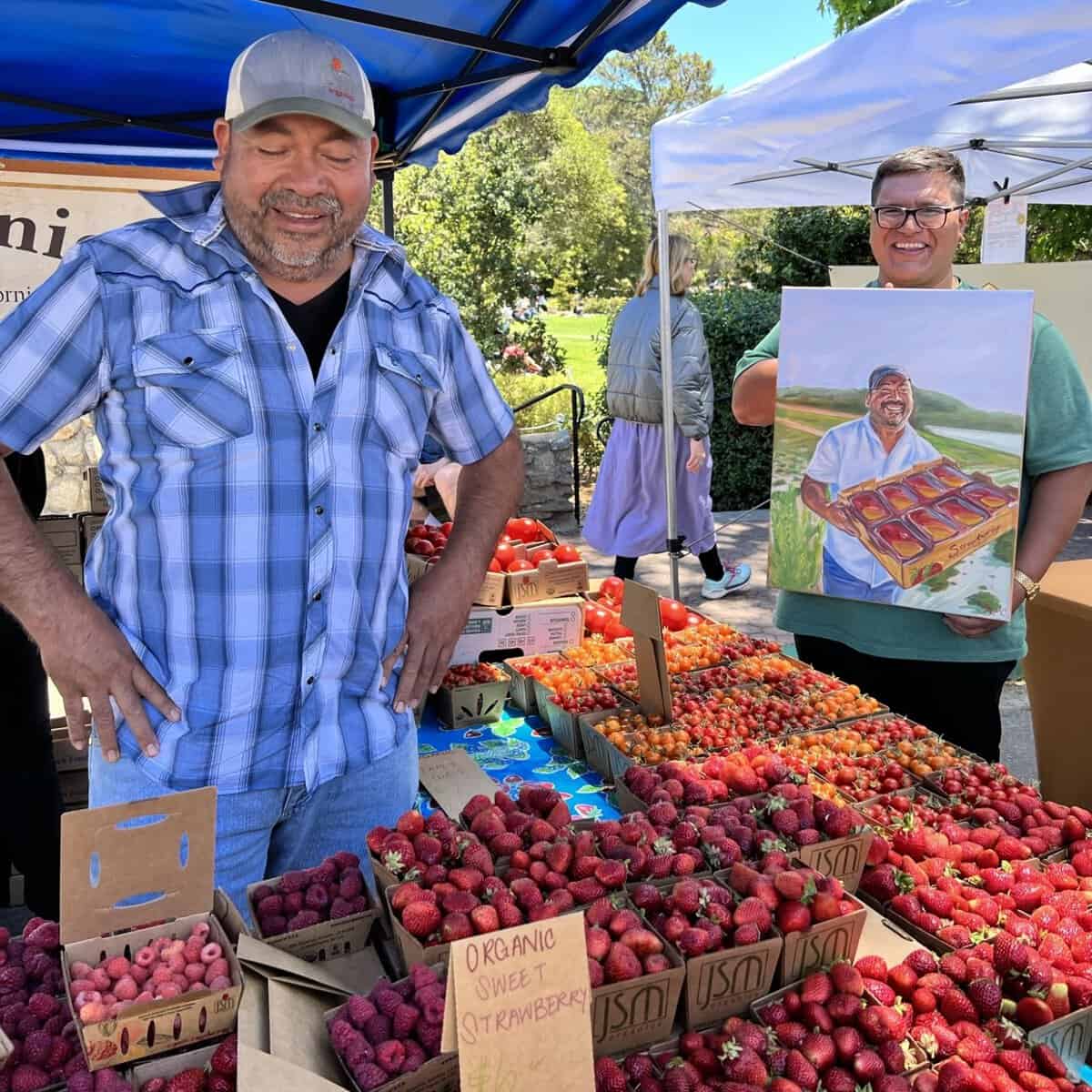

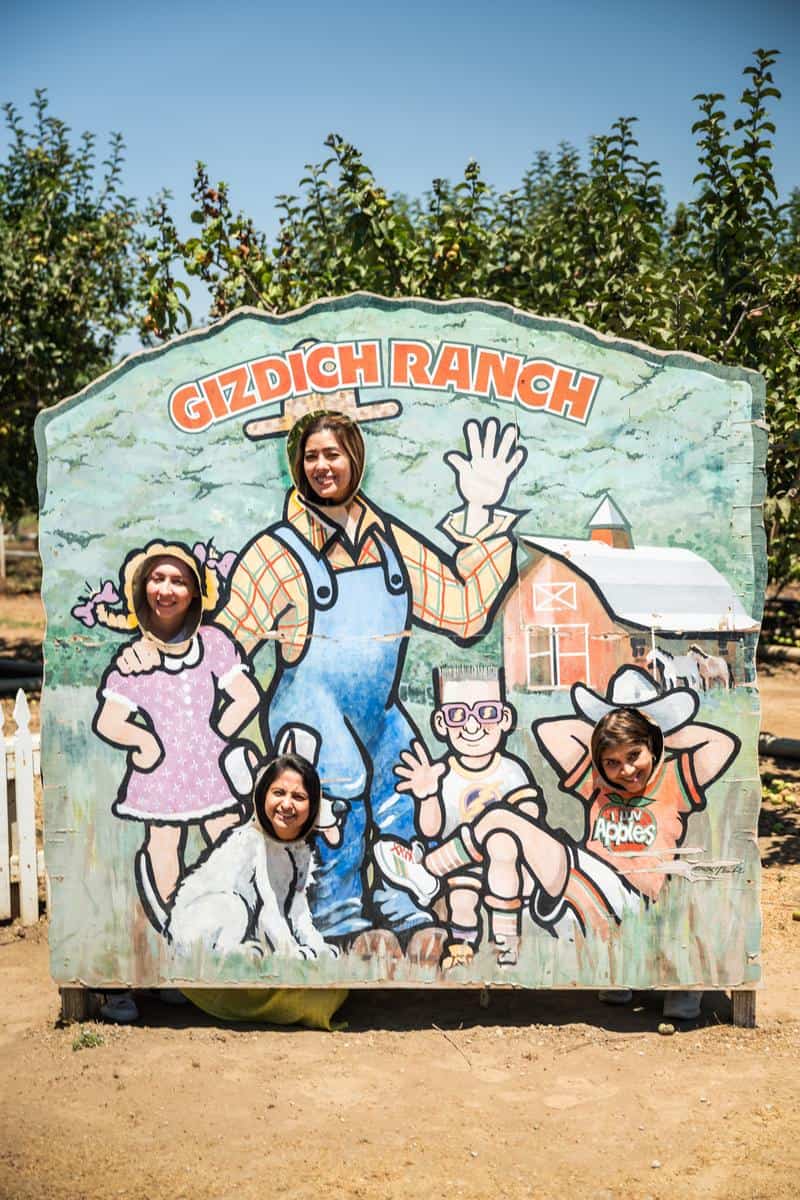
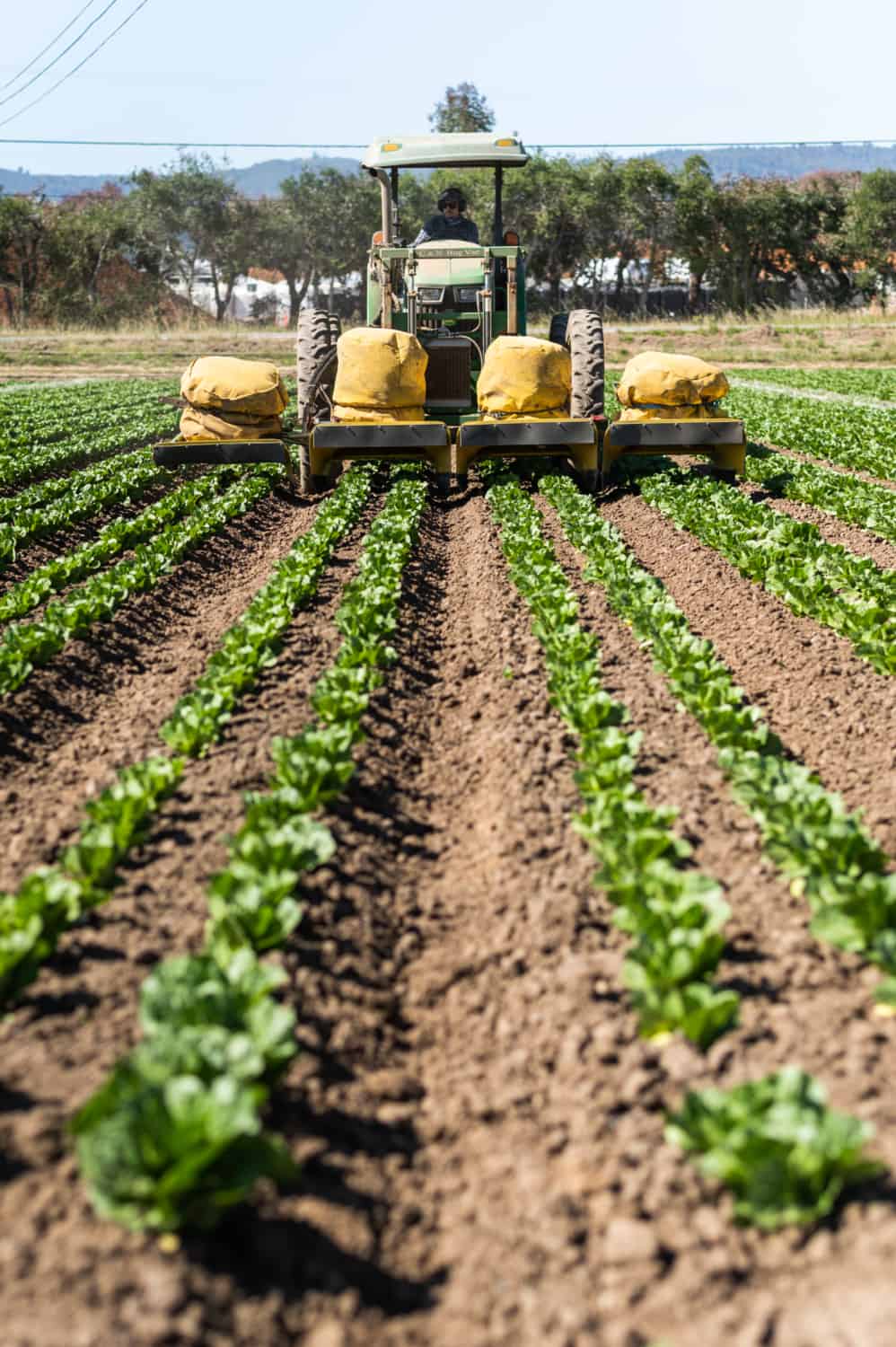
Article by Hilary Rance. Photography by James Collier and Hilary Rance.

